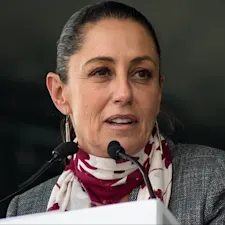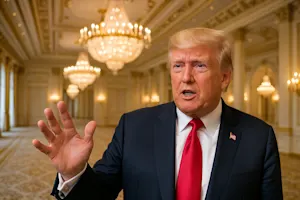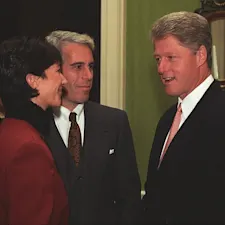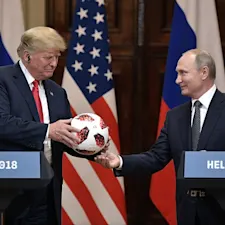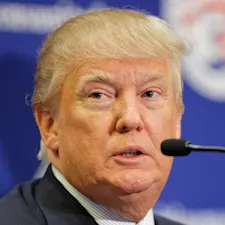
Comey and James Cases Collapse: 'Illegal Prosecutor'
James Comey, 2017. Photo courtesy of Mark Warner under CC BY 2.0.
A stunning courtroom decision has sent shockwaves through Washington, upending two of the most talked-about criminal cases tied to President Donald Trump's political battles. The unexpected twist centers not on evidence or guilt, but on a legal technicality that could reshape how politically charged prosecutions are handled in the future. What exactly happened behind the scenes to derail these high-profile indictments?
A Courtroom Bombshell
US District Judge Cameron McGowan Currie ruled that Lindsey Halligan's appointment as interim US attorney for the Eastern District of Virginia was "invalid," as reported by the Associated Press. Halligan, a former White House aide with no prosecutorial experience, was installed by the Trump administration after the previous interim US attorney, Erik Siebert, was forced out amid pressure to pursue charges against James Comey and Letitia James. Judge Currie concluded that Halligan had "no lawful authority to present the indictment" and that all actions stemming from her appointment were "unlawful exercises of executive power" that must be set aside, as reported by The Guardian.
This decision effectively halted the prosecutions, which had targeted two of President Donald Trump's most prominent political opponents. Comey faced charges of lying to Congress and obstructing justice, while James was accused of mortgage fraud. Both have consistently denied wrongdoing, describing the cases as politically motivated attempts to punish them for opposing Trump.
The Legal Maze of Appointments
The crux of the judge's ruling lies in the complex legal framework governing interim US attorney appointments. Federal law allows the attorney general to appoint an interim US attorney for up to 120 days while a permanent nominee awaits Senate confirmation. After that period, the district court judges are empowered to appoint a top prosecutor. Siebert had served as interim US attorney since January 2025, and when his 120-day term expired in May, the judges extended his appointment. However, in September, Siebert resigned after reportedly finding insufficient evidence to charge James. The Trump administration then installed Halligan, bypassing the court's authority.
Judge Currie rejected the government's argument that the attorney general could simply rotate interim appointments indefinitely, as reported by The Guardian. She warned that such a practice would allow the executive branch to circumvent the Senate confirmation process and the judiciary's role, undermining the checks and balances fundamental to the justice system.
The Irony of the Statute of Limitations
While the cases were dismissed without prejudice — meaning the government could theoretically refile charges under a properly appointed US attorney — the ruling carries a bitter irony. Comey's legal team points out that the statute of limitations for the charges against him expired on September 30, 2025, just days after Halligan's unlawful appointment. This timing suggests that even if the government wanted to retry the case, it might be legally barred from doing so.
This twist highlights a rare scenario where a high-profile prosecution collapses not because of evidence or lack thereof, but due to procedural missteps in appointing the prosecutor. It underscores how critical adherence to legal protocols is, especially in cases with significant political implications.
The Judiciary's Role as a Check on Power
The ruling has been hailed by legal experts and the defendants alike as a reaffirmation of judicial independence and a rebuke of political interference in the justice system. Comey's lawyer described the day of the indictment as "a sad day for our government," as reported by The Guardian, noting that "honest prosecutors were fired to clear the path for an unlawful prosecution." The judge's decision, he said, vindicates not only Comey but all Americans who rely on an impartial judiciary.
Letitia James expressed gratitude for the support she received nationwide and vowed to continue her work undeterred. "I am heartened by today's victory and grateful for the prayers and support I have received from around the country," she said in a statement, adding that she remained "fearless in the face of these baseless charges as I continue fighting for New Yorkers every single day," as reported by the Associated Press.
What This Means for Future Politically Charged Cases
This case sets a significant precedent for how politically sensitive prosecutions must be handled. It sends a clear warning that the executive branch cannot sidestep established appointment procedures to install loyalists willing to pursue controversial charges. The ruling emphasizes that procedural integrity is not a mere formality but a cornerstone of justice that protects against abuse of power.
At the same time, the dismissal without prejudice leaves the door open for future prosecutions if the government can navigate the appointment process correctly. However, the ticking clock of statutes of limitations and the public scrutiny surrounding these cases may deter further attempts.
The Battle Over Grand Jury Procedures
Adding to the drama, Comey's legal team recently filed motions arguing that the indictment itself was flawed due to grand jury irregularities. They claim that the grand jury never properly approved the operative indictment and that at least 12 jurors did not concur on the charges. Prosecutors, however, maintain that all procedures were followed correctly, presenting transcripts to support their case.
This ongoing legal wrangling further illustrates the complexities and high stakes involved in prosecuting politically charged figures. The trial for Comey is scheduled for early 2026, but the recent dismissal ruling casts uncertainty on how the case will proceed.
A Cautionary Tale for Justice and Politics
For you, the reader, this saga is a vivid reminder that the machinery of justice is as much about process as it is about truth. The Comey and James cases show how political ambitions can clash with legal safeguards.
The question now is whether this ruling will deter future administrations from similar tactics or embolden them to find new ways to push the boundaries of power. Either way, the legacy of this case will resonate far beyond the individuals involved, shaping the landscape of American justice for years to come.
References: US judge throws out criminal cases against James Comey and Letitia James | Judge dismisses cases against James Comey and Letitia James | Comey blasts 'reckless and ill-conceived' prosecution - argues charges should be dismissed 'twice over' in latest court filing


